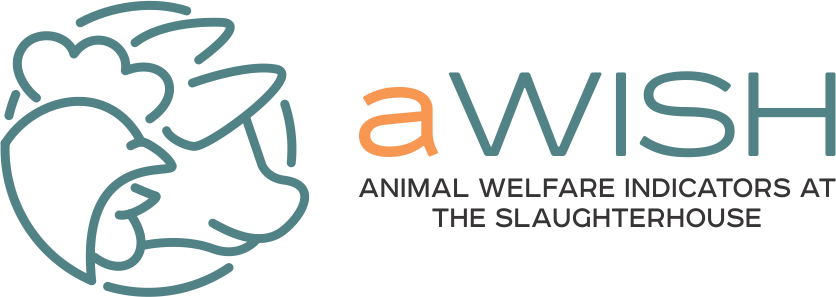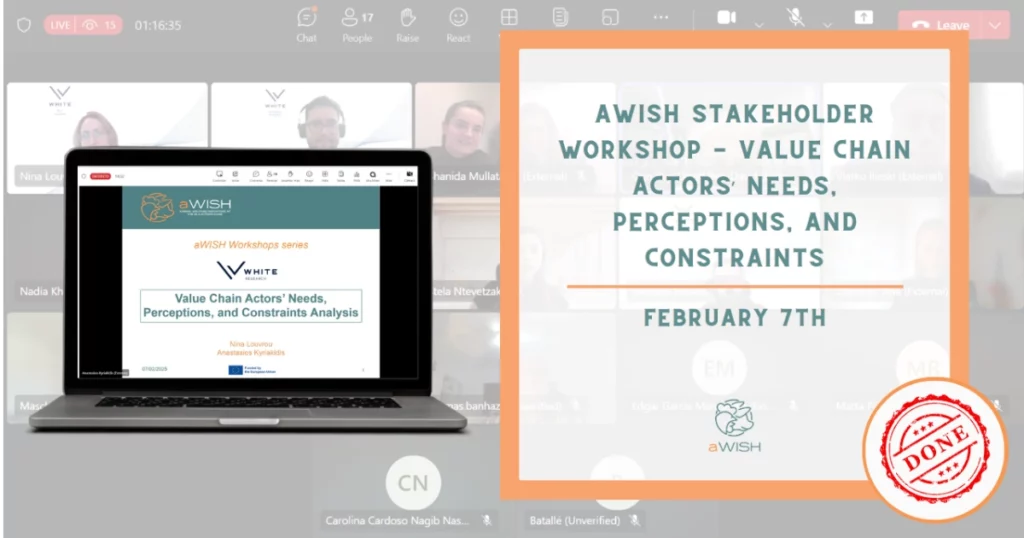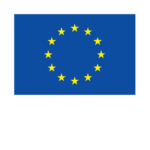Value Chain Actors’ Needs, Perceptions, and Constraints
Organised by White Research, this event provided a collaborative platform for stakeholders—including farmers, policymakers, researchers, industry professionals, and NGOs—to discuss the barriers, perceptions, and opportunities related to adopting welfare-friendly animal production practices. This workshop was the first in a series of stakeholder discussions designed to bridge the gap between research and real-world implementation. Through a highly interactive session, participants engaged in validating research findings, debating key issues, and proposing practical solutions for advancing animal welfare (AW) standards.
Setting the stage
To ensure that discussions were grounded in real-world insights, the workshop was structured around key research findings from the aWISH project’s ongoing work. Under Task 5.4, White Research, with the support of task partners, conducted 50 in-depth interviews with actors across the farm-to-fork value chain, engaging both those before and after the slaughterhouse stage. These discussions shed light on motivators, barriers, and priorities influencing AW adoption. Alongside the stakeholder interviews, White Research also conducted a large-scale EU-wide consumer survey designed to assess attitudes, behaviours, and willingness to support AW-friendly meat products. The survey was launched in April 2024, gathering 5,000 valid responses, and revealed valuable trends in ethical consumption and the economic realities that influence consumer choices.
Key Findings from the Workshop
The interactive discussions throughout the workshop provided valuable insights into the complex factors influencing AW adoption and helped validate the findings from the stakeholder interviews and EU-wide consumer survey. The discussion revolved around important topics, including:
- Key factors affecting the adoption of welfare-friendly approaches.
- Consumer willingness to pay a premium price for meat produced with higher animal welfare standards.
- The role of certification schemes in the uptake of animal-welfare friendly product.
- Key recommendations to improve animal living conditions throughout the entire supply chain.
- Challenges in implementing consistent and effective monitoring systems
The workshop discussions highlighted several key barriers to adopting AW-friendly practices, with cost emerging as the primary challenge. Farmers face financial constraints that discourage investment in welfare improvements unless supported by subsidies or market incentives. Regulatory inconsistencies across EU countries add complexity, making compliance difficult for businesses operating across borders. Additionally, consumer awareness gaps and misconceptions about AW certifications contribute to scepticism and limit demand for certified products. While 65.9% of consumers expressed willingness to pay a premium for higher-welfare meat, economic constraints still influence purchasing decisions. Stakeholders emphasized the need for standardized EU-wide AW certifications, clearer labelling, and stronger auditing measures to enhance credibility and encourage adoption.
Efforts to improve AW across the supply chain focused on key recommendations, including reducing high-density farming pressures, enhancing transport regulations, and reforming slaughterhouse practices to minimize stress and suffering. Strengthening EU-wide enforcement mechanisms was seen as essential for long-term progress. However, implementing effective monitoring systems remains a challenge due to high costs, regulatory inconsistencies, and data privacy concerns. Trust in monitoring frameworks varies across sectors, making harmonization difficult. To address these issues, participants proposed EU-wide monitoring systems, financial incentives, and investment in advanced technologies.
Looking Ahead
The workshop played a key role in confirming and validating the results of T5.4 through expert input. The insights shared reinforced the robustness of the findings and provided valuable perspectives for their practical application. This validation strengthens the project’s approach, ensuring that the outcomes of T5.4 effectively support improvements in AW standards across Europe. The event also marked the launch of a series of stakeholder workshops, with the next session already scheduled for 4 March 2025. Titled ‘Detection and Remediation through Sensor Technology,’ the workshop will be hosted by the University of Veterinary Medicine Vienna, Innotech, and the Autonomous University of Barcelona.


